Before I really get into embodied hatred and what it teaches you, I want you to take a moment to consider who you think of as your personal group of “us” and also who you consider the other group(s) - the “them.”
Think about your life for a second. Think about how you THINK about other people. Think about the thoughts you have around your friend groups, your coworkers, your social groups, your community. The following questions can support getting clarity around your thoughts?
How do you relate to groups of people as an individual?
Who are you to people?
What is your persona around groups?
Do you feel like yourself or do you feel like you have to be someone other than yourself to be in groups of people?
Do groups of people drain you, energize you, or have no affect on you?
What, if any, kind of people do you instinctually feel connected to or want to connect to?
What kind of people do you avoid connection with?
What makes you feel like an “us”? Belief systems? Life style choices? Ideals?
What makes you feel an other as a “them”? Politics? Gender? Wealth? Status? Class?
What are the personal judgements or beliefs that you hold that allow you to be justified in separating yourself from an other without getting to know them?
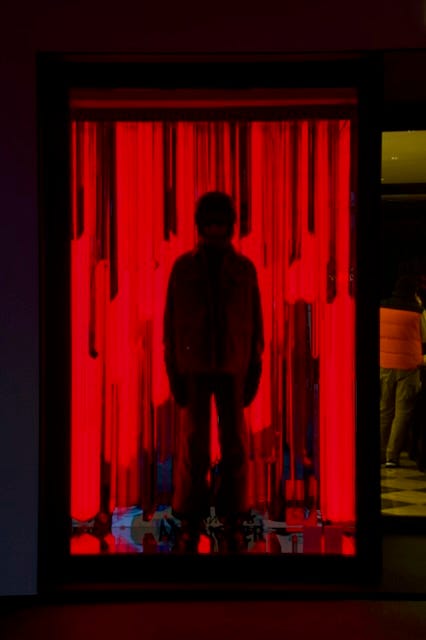
Photo Credit: dr.joe.rothstein
Belonging
We all want to belong. We also all inherently resist belonging. When I facilitate groups, my main interest is centered on feeling into the participants’ continuum of belonging. Our tensile relationship to belonging is personal and, well, subconsciously devious. The ways we resist belonging define how we relate to the limiting beliefs enmeshed in our “us” versus “them” mentality.
Whenever we find ourselves in a new group of people, we instinctually will begin the process of inserting ourself into the group and also extricating ourself from it. This process is habitual. The insertion and extrication currents occur simultaneously. The desire to belong or not belong is a product of a society that does not know how to truly accept people for who and what they are. We cannot force this socially taught dichotomy into embodied connection without owning our own part in it through exploring our own relationship to belonging over and over again..
It’s pretty obvious that “us” versus “them” is being used by media, politics, religion, and society itself to highlight or evoke a polarization. It seems like culture is more interested in propagating the split than healing it. We justify reasons to be against others, to find the otherness of others, to forget the human struggles that connect us all. Our insecure self secretly and, when we are honest with ourselves, not so secretly likes the world of “us” and “them.” Why do we do prefer separation to connection?
Why is it easier to create a relationship to “them” than it is to remember that we are all interconnected in a universal “us”?
There is a force in the world that wants us to root into an “us” versus “them” reality. One the surface, this is not a force that sees value in the heart or in the interconnection we have to all that surrounds us. This force does not seem to care about the future of our children or a world where we as humans evolve into understanding how to cultivate peace and love. At first thought, the force wants us to align with “them” and, consequently, hate.
Looking deeper, this force is actually inherently positive. Why? We are born with the gift of choice. It is one of the pillars of our existence as human beings. Only in knowing how to separate can we make a choice to unify. We need shadow to arise in its darkest forms in order to cultivate unconditional connection as well as to consciously choose love. The “us” versus “them” creation force is a force of deep trust and surrender into our own choices, no matter how much we may suffer as a a result of what we choose.
Stepping outside of the demand of your own programmed “them” requires an evolution that moves from awareness into a sense of choice.
The Allure of a Closed Heart
Here’s the problem. In reality, there is so much energy and habit that can go into a “them” mentality. A “them” way of being has an energetic building and often a release to it. This process becomes addictive on multiple levels. The “them” has a churning sense of polarity that can be custom built to satisfy your own viewpoint and provides a clear corridor to avoidance of all your fears. It also has the power to connect you to your own wounded disconnection without ever needing to do the work of connecting. In a way the “them” can feel like your own internal algorithm is building a case against oneness or connection that is completely specific to you. Once you have picked your flavor of “them,” the “them” will appear not only in your physical life but your digital life as well. It’s creepy.
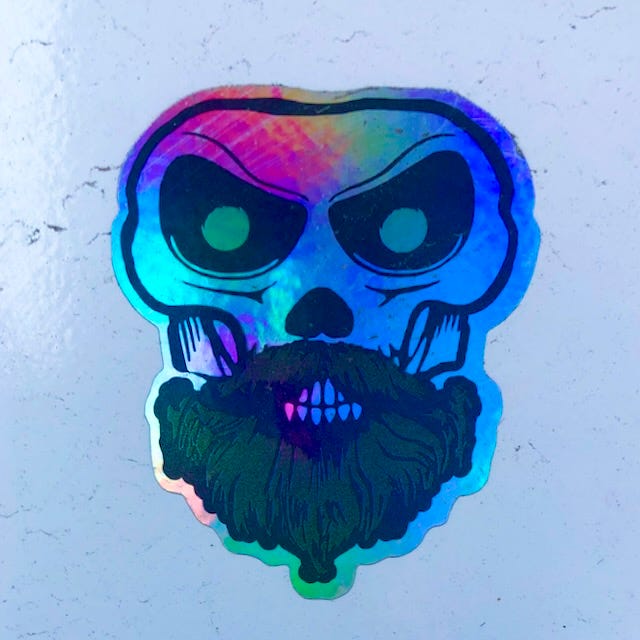
Have you ever wondered why we humans tend towards heart problems, circulatory diseases, and blood coagulation issues that get more likely as we age? This is because we close ourself off to our own heart over time. We harden. This is the natural side of living in a society that does not push us into greater degrees of acceptance and any true seeing of other people. We get to categorize into separation and avoid looking without and within.
Before we know it, we are habitualized to a life that is disconnected from our hearts and only aligns with solutions by closing down even more. I sometimes wonder if this is another side effect of our tendency to live in our own heads. The science of heart-brain communication reminds us that no matter how much we want to believe in the brain as THE solution to our problems, we cannot live a healthy life without the input of our heart. Why then do we prefer to listen over and over again to our brain and avoid our heart?
Your closed heart is safe. It is protected. It knows how to relate to the world in black and white. It seeks reasons to stay closed so that it doesn’t have to feel vulnerable. A closed heart would rather yearn for things to change than actually change anything. Intimacy, connection, love, and compassion are easier to desire than to create. To transform and experience trust, deep connection, surrender, intimacy, vulnerability, and to fall into a long term love are all concepts that involve a lot of risk.
Point to Consider: How many times do you tell yourself that the change you desire is too hard for you or will require too much work on your part?
At its core, the heart feels safer desiring than doing, wanting than changing.
We are more likely to seek out reasons to close the heart and keep it closed. We rationalize how to shut down and shut out others. This is the personal appeal to the “them” mentality that is stronger than our own desire to change. We use this against ourself. We conclude that negative sensations and the feeling of negative emotions is an excuse to shut down our heart. When we find reasons to cultivate a “them” we are aligning with our own inertia in service to our closed heart.
In addition to this lure of the closed heart, there is also the release found in the energy that goes into the “them.” Just feel into your own relationship to any “them.” Start to think about all the reasons you are justified in feeling this way. Let yourself feel the separation and the pull it has in you. As you do this, notice how everything gets activated. Feel how it grows and changes, getting stronger. Feel how good it can feel. Patriarchy, feminism, racism, war, politics, the environment. What gets your negative juices moving? Let yourself feel it here with me now. Feel the plesure. Feel the possibility. Feel the sense of choice.
Your energy is moving, yes. It is moving in a stream, or possibly even a flood, of negativity.
This is not a risky movement for your energy. It is a familiar way to push the world away and to make yourself important. It is a safe way to be separate and not have to go deep or self reflect too much. Your ego can run on this energy for a long time without ever getting sick of your own thoughts. Any negative feelings or uncomfortable realizations can simply get pushed into the abundant energetic stream of “them.” It is so easy! It takes zero mindfulness, no attention or self honesty, and has a scary familiarity to it that can be rationalized and justified in any direction you want to take it. Quite frankly, it is one of the most addictive ways of being we have available to us. It is also so easy to fall into and believe.
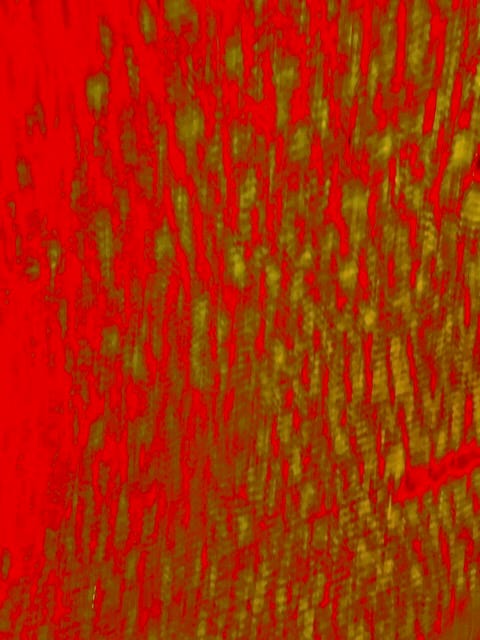
Hatred spreads. It grows like a tumor. What may start as a simple seed of thought or an evasion of feeling easily becomes systemically narcotic.
We can feel hatred in a location in the body that doesn’t seem like it has anything to do with our heart. We can hate with our entire being. We can radiate hate. We can run hatred inside us so that it becomes more familiar to us than the truth of our own being. Hatred keeps us safe. It keeps us separate. Hatred keeps us feeling alive while just as loudly killing us off. The more we run hate inside us, the harder it is going to be to trace it to the root — our own beautiful and vulnerable heart.
The Root of Hate
Inside us all is a core wound that says “I cannot be loved for who I truly am.” It’s not a hard wound to end up with. How it originated in any person’s creation story simply tracks back to a time when we expressed our self and someone rejects us.
We all get rejected at some point in our upbringing by someone who is really important to us. It’s not hard to create this wound in a child. As a parent, I’d say it’s actually impossible to NOT create this wound in our children. The moment this wound occurs, we decide that we have to separate a part of our core self from our self. To be loved and accepted, we avoid feeling the wound by creating a “them” inside our own being. We separate from our own innate “I.” How many times we are exposed to feeling unloved or rejected and how we are exposed to this wound defines how potent our sense of “them” and our loss of “I” becomes.
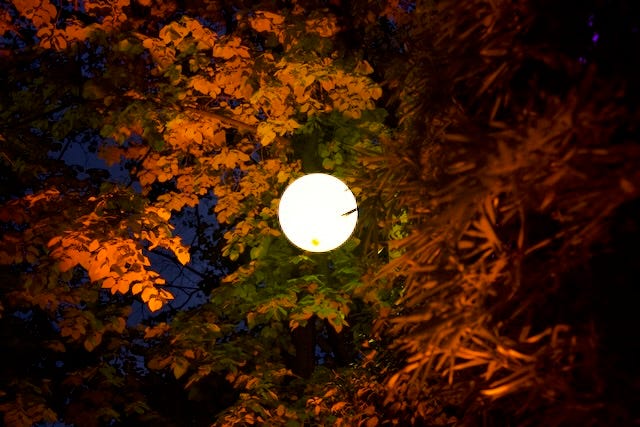
This “them” that forms inside of us is saying that something has to die inside us for our “I” to survive in the world.
Not feeling like we can survive as our truest self is the root of all hate.
We choose hatred because without a boundary between “I” and “them”, we believe we will be killed by the other. Our hatred keeps us in control through choice. Hatred is a black and white vision of reality that does not have any bandwidth for grey. Hatred is choosing death over vitality. Our hatred knows that to close our heart is the ultimate act of avoidance
Hatred is easily referred to as a closing of the heart. I am going to argue it is important to take this easy supposition one step further.
Hatred shrouds us from our own soul.
Hatred is a closing off of a relationship to not just our heart, but our soul seat - the place inside us that connects our core self to our heart’s expression. Our soul seat is where our soul’s purpose and soul’s longings reside. Our soul seat is the sacred space of our heart. All of our heart energy feeds into the soul seat. The soul seat brings us into a place of individual knowing of value and uniqueness as a necessary part of the world as it is.
Our soul seat answers the question, “How am I meant to share my soul with the world?” How often do you ask yourself this question? How often do you get an answer?
By opening to hatred we are shutting ourself out from our own soul’s purpose, the reason we are here on the planet at this moment as humans. When we hate, we are rationalizing ourselves into believing that we have to compete to survive. We have to fake who we are to live. We are choosing to be killed off to maintain control and avoid pain. We are creating an eclipse between our truest expression of self and our life.
Self Hate
To be very clear - the root of all hate is self hate.
Whether or not you are more comfortable internalizing or externalizing your hatred is based on how you process the wounds of your soul. The root of all hatred starts within as an avoidance of pain and a subsequent deep rejection of our self. From there, some of us are more comfortable running energy that cloaks the rejection or externally feeds off of it. All hate stems from the initial impulse to hate the self.
For some of us it is kind of like a moment of duh to read think about the root of hatred as self hate. To say that all hatred begins as self hate is more obvious to those of us who are full of self hate. You are the people who tend to internalize hatred into self hate.
For those who struggle to make this connection between hatred and self hate, the comfortable relationship to hate is going to be in externally running of its energy - hating others. You may find you are addicted to the releasing energy of hate. For those of us who disassociate from hate, there is even more deeply ingrained self hatred.
In those of you who disassociate or who cannot admit hate, you are rejecting your soul’s purpose at its deepest level. Your soul path feels like it cannot even be present in the world because of the hate that exists here as a beacon of light.
Whatever combination of hate you have, recognizing the fact that personal work on hate needs to begin within can be a hard reality to swallow. It’s so much easier to demand that the world change before we soften our heart to our soul.
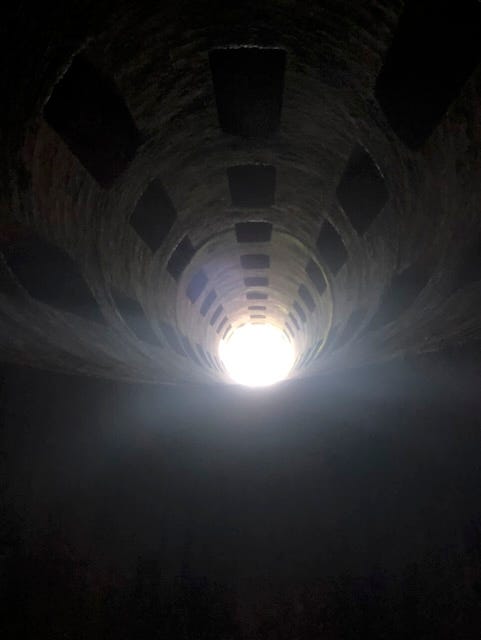
Hating Those We Love
This type of relational hate is more subtle than the habitual hatred we choose in our desire for space and defining self. Feeling hatred towards those we love actually stems from wanting to protect ourself from deepening into an unconditional love. Sometimes we love someone so much that we hate how they don’t give their own self the space or permission we give to them. We love someone so much that we hate the choices that they make to close themselves off to who they truly are.
Sometimes we hate people we love for not being able to deeply see us or actually for deeply seeing us. We want to be valued without taking risk. We would rather hate someone who seems not to value us than soften ourselves enough to ask to be valued. We are afraid to risk the person we love’s rejection and so we suppress our self. When someone deeply sees us, they may believe that we are capable of something we do not believe we can achieve. We may enter into hate because we do not want to admit a truth about ourself that is necessary to open into deeper self love.
Hating those we love is saying, “if I can love you, why can’t you love me?” or “I hate you for not being able to love me the way I love you.” The conclusion we come to is to hate as a response that avoids fully surrendering to the force of unconditional love. Hating those we love is wanting to be seen more. Hating those we love is also sometimes not being able to love someone in their choice to shut themselves off from the love that is shared between you.
Hating those we love can also be a side effect of jealousy or envy. In this case, we are reacting to something that we think we can’t have that someone we love does have. For example, we may hate someone we love for being able to easily engage in self care or for being effortlessly artistic. We may not at first feel this as hate. We may even, in new relationships, feel this as admiration, lust, and a reason to fall in love. Yet as love progresses this same thing we once admired changes to hate when we feel like we cannot have what we want in our own life.
We may wish that the person we love feels more value in their own achievments or pay more attention to what they can effortlessly accomplish. We may want recognition for our own unique skills. All of these negative feelings get confused in wounds and defenses and our inability to understand and appreciate our own precious uniqueness.
The Wake Up Call of Hate
Our inability to be our self or our lack of willingness to know our self is the root of hate. If you think about it, this process inevitable. This process is also completely ordinary in our human world. This is why I believe that there is a connective force of awakening and choice behind it. Hatred is, at its root, pure love. Without it, we will not understand how to choose love and how to express our truest self as love.
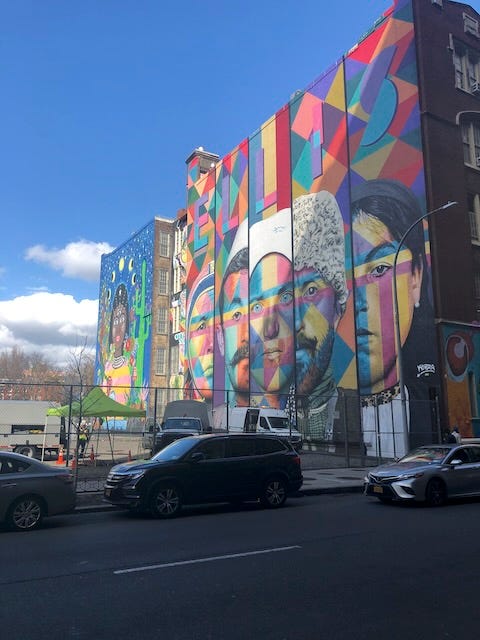
When you feel hate, the soul is telling you to listen to it, to seek it, to expand it. The heart is asking for an opening. The soul seat is telling you it is time to grow into an expression of service to humanity.
Hatred is asking for light. Hatred is begging for your own slowing down and seeking of an inner truth that has been lost to you. Inside hatred is an impulse towards something that is judged and denied. This impulse is often one of vulnerability, innocence, connection, and self expression. This is the place inside us that wants to open to its birthright of loving everything, everyone, and all that is true about the world. The birthright of worth, expression, and value. This is need in its purest form. The need to be needed and the need to be loved.
Often when we try to wake up to hatred, fear comes up. The fear is trying to tell us that we WILL lose ourselves if we open. This is the voice of separation that is trying to keep out change. The ego is strong in this voice. We need to be able to hear the fear for what it is and acknowledge that in embracing it we will actually find ourselves. The fear is convincing us that to risk anything but what we know will cause us pain. The desire to shift hatred means we have to be able to accept this fear as part of a process.
First, we get to experience the emotion that feels like a choice - hate.
Then, we have to surrender to the true emotion underneath that is running the hatred itself - fear.
Last, we get to choose to seek inside and speak to our own heart and soul and ask ourself what we need to be needed and what we need to be loved?
The following is my own meditation with my self hatred. (FYI - Paid subscribers get a guided meditation at the end of this post.)
I feel hatred as a conduit of darkness inside me. My urge to do something about the darkness is impulsively greater than my desire to sit and tolerate it, let alone get to know it. I want to move it, act on it, not be absorbed by it. I want to push away and not feel vulnerable. I must tolerate all of these currents of sensation to go deeper. Hatred is my place of death. Hatred spirals into negative thoughts and emotions all on its own. To sit in the space inside myself that hates is to accept myself as dead. To fight it brings aliveness…but also spreads the death.
Instead I bring in unconditional love and say to this space, “I want to know me here.” I feel a lightening and also a hiding. The feeling is more tolerable. I must remember to withstand everything without making anything bigger than it needs to be. I sense my own loss of innocence, my surprise at how cruel others can be to me. I sense my innate distrust of the world with my pure naive soul. I wonder what care is. I feel acceptance towards my own soul’s vulnerability. I feel a need to be important inside my own heart. I ride the subtle waves of opening and do not ask for my self to be any greater than what I can handle. Flowing through me in this moment is what is, not what I want it to be. I step aside and surrender to the current.
Transformation: Is it Possible?
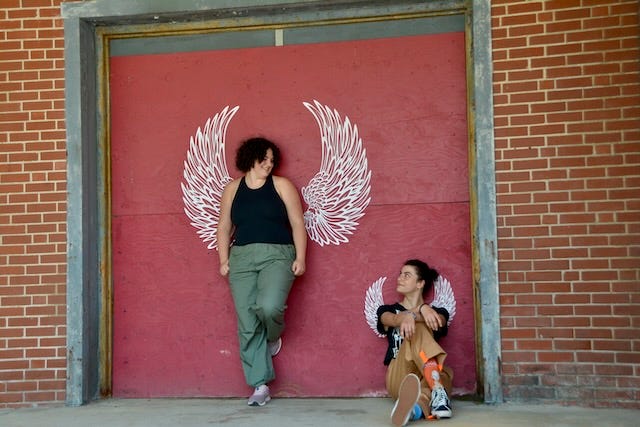
When you decided that there were parts of you that you needed to hide, disown, fake, avoid, or forget your own path towards hatred began. It is impossible to live in this world without the impulse to hate. To transform it, you have to own how deep hatred resides inside your being. You have to recognize your tendency to push away as an attempt to claim space and also your tendency to reject parts of yourself to avoid pain. Both of these inclinations engender hate.
Hatred that is ready to be transformed will feel like a forgetting of a self. When hatred feels like forgetting, it doesn’t have that addictive quality to it anymore. Hatred starts to feel bad while a coinciding feeling of choosing differently arises. It fills the black hole inside that is our ultimate separation from your own light and path. When you can build your container to feel this type of hatred, you no longer want to nourish it and addictively run it’s energy. Instead you want to awaken to your inner self and acknowledge it’s preciousness. You break the shadow cycle of self sabotage.
Today I am going to end my writing with a poem that came into my inbox as I edited this post. There are no mistakes in this world really, are there?
All My Life I’ve Been Waiting
By: Harold Norse
All my life I've been waiting
for something unusual to happen.
I may yet come into a windfall,
National Endowment of the Hearts.
All my life I've been expecting
a grand finale, an awakening,
love erupting in the streets,
in the bars, in classrooms,
everyone dropping their guard,
their pants, their skirts,
cops weeping tenderly
as they snap off your cuffs,
bankers giving away their money,
politicians telling the truth,
literary critics confessing
that they know nothing
about writing or life.
All my life I've been waiting
for something unusual to happen. 


